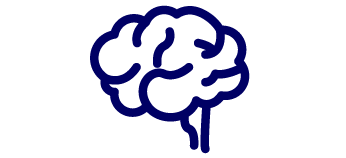Deep brain stimulation (or DBS) is a surgical option for patients struggling with neurological conditions such as essential tremors and other movement-related disorders. DBS is considered when medication is no longer adequate in maintaining good quality of life.
“Movement-based neurological conditions can have a significant impact on the way you go about your day-to-day routine,” says Ellen Air, M.D., a neurosurgeon at Henry Ford Health. “For patients who are experiencing problems such as tremors, involuntary muscle contractions, movements disorders and stiffness, DBS might be able to help.”
How Does Deep Brain Stimulation Work?
DBS is a two-part surgical procedure where a neurosurgeon will first implant electrodes into an area in the brain that affects motor symptoms. (This procedure has traditionally been done with the patient awake. However, due to advances in MRI imaging, asleep surgery is now an option with comparable results.) At the second stage, extension wires and a neurostimulator (similar to a pacemaker) will be implanted over muscles in your chest.
Once completed, your neurologist will work with you to program this technology to send mild electrical signals to the connected electrodes. It may take some trial and error to sort out which settings are best for you and your needs. These electrical stimulations help alleviate unwanted motor symptoms associated with movement disorders so you can feel more confident about managing your condition on a daily basis.
Who Is A Good Candidate For Deep Brain Stimulation?

Deep Brain Stimulation At Henry Ford
A team of experts will evaluate your condition to see if DBS is right for you. Some factors that are taken into consideration include:
- Age
- Current mobility
- Psychiatric or mental state
- Medication use (If yes, have they worked?)
- Overall health (Can your body handle a surgical procedure?)
“Talk with your doctor to see if you would benefit from DBS,” says Dr. Air. “Remember that this treatment could help your mobility, but it will not cure other aspects of degenerative neurological conditions such as memory loss, speech and mood changes.”
If you are looking for other ways to improve symptoms of neurological conditions, talk to your doctor about alternative therapy methods. Several programs exist that are designed to help increase your mobility and strength or improve vocal patterns and memory.
Reviewed by Dr. Ellen Air, a neurosurgeon who sees patients at Henry Ford Hospital in Detroit and Henry Ford West Bloomfield Hospital.



